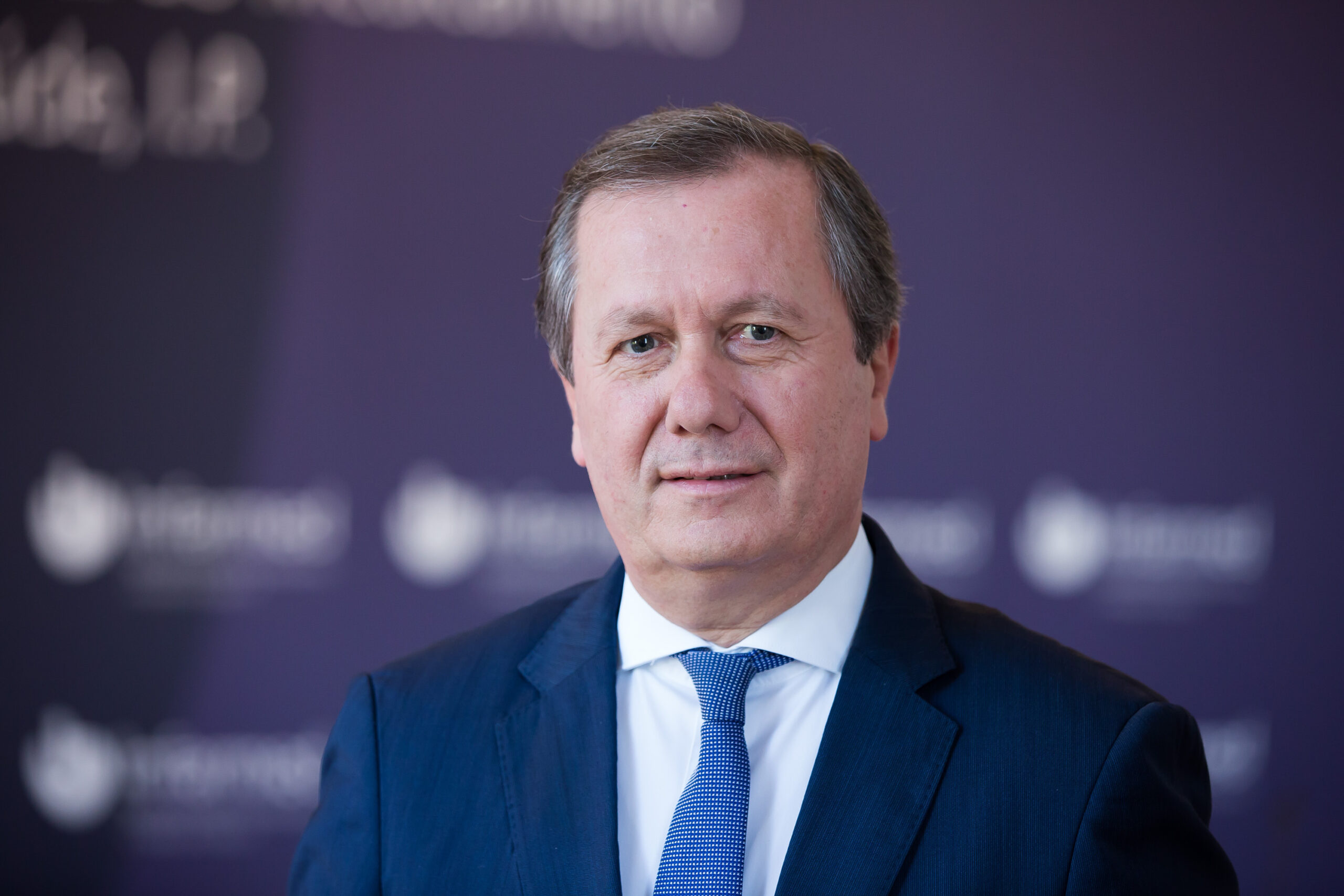Dr Rui Santos Ivo serves as the Portuguese representative to the EATRIS Board of Governors. He is based in INFARMED I.P., which is the coordinator of EATRIS Portugal. As a part of the EATRIS Spotlight programme, EATRIS Portugal will be showcased for its scientific excellence and capabilities, enhancing its visibility on both national and European levels. Also check out the interview with Helena Baião, the National Coordinator of EATRIS Portugal here.

Tell us a bit about yourself
I am Portuguese and graduated in Pharmaceutical Sciences from the University of Lisbon in 1987. I began my professional career as a hospital pharmacist at Egas Moniz Hospital in Lisbon and joined INFARMED I.P in 1993, initially working in the Licensing and Inspection Department. After several roles at INFARMED I.P, since July 2019, I have been serving again as President of INFARMED I.P – the National Authority of Medicines and Health Products. I am also an Invited Associate Professor at the Faculty of Pharmacy, University of Lisbon, where I teach Medicines Regulation. At the European level, I currently chair the Heads of Health Technology Assessment Agencies Group (HAG) and, since March 2025, I have the honour of serving as Chair of the Management Board of the European Medicines Agency (EMA).
How are you connected to EATRIS, and what does it mean to you that Portugal is a member of EATRIS?
I have served as the EATRIS National Representative and Governor since 2019. For Infarmed, the EATRIS infrastructure has long been aligned with our strategic priorities, particularly in supporting biomedical innovation and strengthening translational research in Portugal. Being part of EATRIS allows us to connect national capabilities to a broader European ecosystem, fostering collaboration, knowledge exchange and the development of new solutions for patients. Portugal’s membership in EATRIS is a key component in our efforts to advance research infrastructures and bring scientific advances closer to real-world application.
What has been the highlight of your EATRIS experience so far?
A key highlight has been the strong networking capacity fostered by EATRIS, enabling collaboration across diverse Portuguese and European institutions and nodes. EATRIS has been instrumental in catalysing national participation in strategic projects, particularly in personalised medicine. The training opportunities offered have significantly enhanced the know-how and skills of researchers and professionals in critical scientific areas. In addition, the platform has facilitated exchanges between institutions, supporting qualification and capacity building in essential domains regarding the translational research.
What about Portugal in the EATRIS Spotlight programme?
The EATRIS Spotlight programme on Portugal is a valuable opportunity to showcase the unique strengths and capabilities of each participating institution. By highlighting methodologies, processes, and specialised knowledge, we can better demonstrate the scientific value and potential contribution of Portuguese entities to the broader European research community. This visibility helps catalyse greater engagement at national level, encouraging deeper involvement in collaborative projects and reinforcing the role of Portugal and our node as an active and qualified partner within the EATRIS infrastructure.
What advice would you give your younger self?
Throughout my growth as a student, I always tried to embrace different perspectives as a way to better understand the various dimensions of the professional field I wanted to pursue.
Times have changed, but I believe these qualities remain timeless. I’d tell my younger self to stay deeply curious and focused on his goals, to pursue learning with rigor, and to seek a broader, more integrated understanding of his profession — expanding horizons and understanding the whole system around the field he wishes to follow.
What do you like to do when you aren’t working?
I enjoy reading, going for walks, spending time with family and friends.
If you were a drug, vaccine or diagnostic, what would you be and why?
I’d be a super CAR-T cell therapy, engineered to seek and destroy every cancer cell, no matter its origin. A living drug with purpose — precise, adaptive, and tireless in restoring balance to the body, turning science into hope, and hope into healing.
If you had unlimited resources and could solve one research problem, what would it be?
If I had unlimited resources, I would focus on strengthening the integration between regulatory science, clinical research, and real-world evidence generation. Considerable progress has already been made across Europe in this field, but there are still gaps that limit the full use of data and scientific knowledge in regulatory decision-making. I would invest in refining interoperable systems, improving data quality, and promoting collaborative research networks capable of translating evidence into faster, more reliable insights and enhanced access to innovation for patients.
What would it surprise people to know about you?
It’s no secret, but I have a little attraction to linguistics. It has always been there, but my international experiences have brought me into contact with more Latin languages — French in particular — Germanic and slavic languages and languages from other origins. And I ended up becoming an aficionado and perhaps knowledgeable. It’s a curiosity about me that has already come in handy. Whether on my personal or professional travels, or in managing international groups.
















